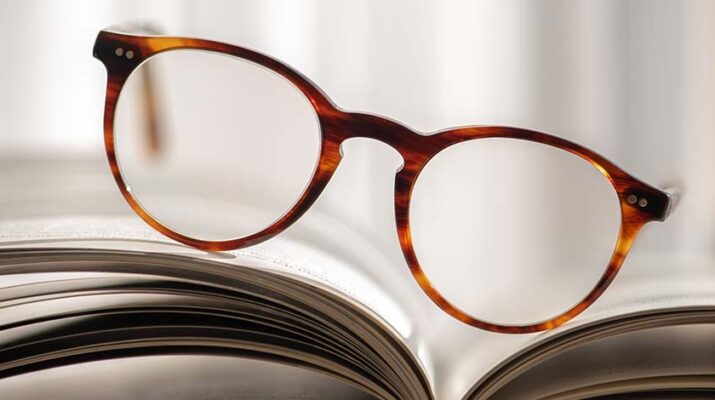Patients must have a thorough, dilated eye exam before obtaining a prescription of Vuity
By Deborah Jeanne Sergeant
Are you “playing trombone” with your phone or reading materials?
Perhaps you’ve bought a pair of reading glasses—or two or three—and still never manage to have them when you need them.
Now you have another option: VUITY (pilocarpine hydrochloride ophthalmic solution).
The prescription eye drop can help correct age-related blurry near vision (presbyopia) in adults.
“It’s FDA-approved for 45- to 55-year-olds for presbyopia, the slow progression of the inability to see up close,” said Mark Deeley, a primary care optometrist for Rochester Regional Health.
Patients use it once daily and can gain improvement in their near vision by three lines on an eye chart. Deeley also said that those who wear contact lenses for their far vision can use VUITY if they wait at least 10 minutes between administering the drops and putting in their contact lenses. Contact lenses tend to absorb chemicals, including medication.
Within about 15 to 30 minutes of using the drops, patients experience a notable improvement of their near vision that peaks for one to two hours. For the next three to 10 hours, the effect dissipates. This could help someone on the go who does not want to bother carrying reading glasses all the time.
“You shouldn’t use it before nighttime driving, as it works on the sphincter muscle of the pupil to make it smaller,” Deeley said. “When it’s smaller, it increases the depth of focus, but because it makes the pupil smaller, you may have trouble with low light.”
He said that the level of improvement varies among patients based upon studies, but he still has not prescribed it much. Insurance does not cover VUITY.
“It’s not a miracle drop that works 100% for everyone but can make you less dependent on eyeglasses throughout the day,” Deeley added.
Therese Farugia, optometrist with UR Medicine’s Flaum Eye Institute, said that for those who are very far sighted, “it may not help as much. It gives a very good depth of focus, so it depends on how much the pupil constricts.”
She noted that patients interested in VUITY must have a thorough, dilated eye exam before obtaining a prescription for the drops.
“It can cause redness,” Farugia said. “It’s a mild drop, but when you constrict a pupil, you’re at a higher risk for a retinal detachment.”

